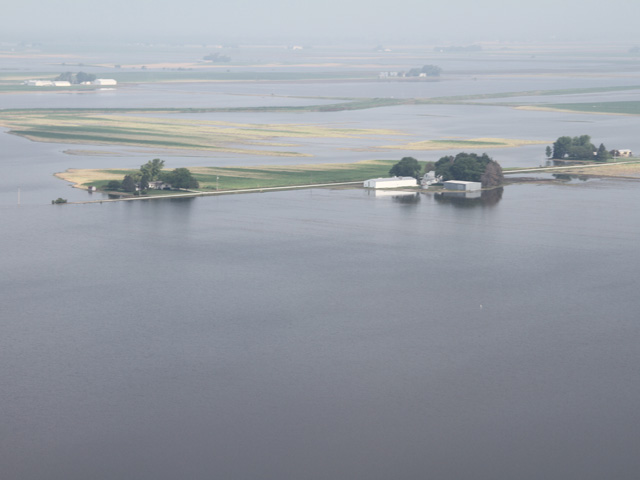Taxlink
Weather and Income Deferrals
What a wild ride. No, not COVID or politics. I'm talking about the weather -- from drought and fires to floods. Because of the weather's significant impact on farmers this year, I want to review a few planning opportunities to help mitigate the potential tax consequences.
Many farmers will defer the 2021 crop into 2022 to delay recognition of income. But, what are the rules? A deferred payment contract is essentially an installment sale. An installment sale requires that at least one payment is received after the close of the tax year. If payment is made within six months of sale, or no payment is due more than one year after the date of sale, no interest is required. A farmer can opt out of deferred payment contracts on a contract-by-contract basis. That is why it's recommended that farmers have multiple deferred payment contracts rather than one or two large ones.
With drought and floods, many farmers will receive crop insurance proceeds in 2021. The ability to defer depends on the type of payment. Under IRC 451(d), a farmer can elect to defer crop insurance proceeds and USDA disaster program payments if the incident results from destruction or damage to crops caused by drought, flood or other natural disasters. It also includes insurance proceeds related to the inability to plant a crop because of such a disaster. It's required that the crop insurance proceeds are received in the year of damage, and it's customary for the farmer to defer more than 50% of crop income to the following year.
P[L1] D[0x0] M[300x250] OOP[F] ADUNIT[] T[]
It's important to differentiate insurance proceeds because of crop damage/destruction and revenue protection policies. Many farmers have combined revenue and disaster loss insurance policies. Revenue protection payments are not eligible for deferral and must be included in income in the year paid. There is some debate if revenue protection proceeds resulting from damage or destruction because of drought, flood or natural disaster could be eligible for deferral. This goes against IRS guidance, so I will not opine further.
Some livestock producers may be forced to sell animals because of weather-related issues. The IRS allows livestock sales because of drought, flood or other weather-related conditions to postpone gain until the following year. The deferral only applies to the livestock that was disposed of in excess of the normal course of business. In addition, the farmer must be located in an area declared eligible for federal assistance. There is also a provision in the tax code related to disposing of breeding, draft and dairy livestock because of weather-related issues.
Under the involuntary conversion provisions, a farmer can delay gain for up to two years after the close of the tax year in order to repurchase replacement livestock. However, if the farmer does not purchase replacement livestock (or replacement cost is less than received), you must amend and report the gain in the year of sale.
One thing to keep in mind is that 2022 might have a very different tax environment. Although we are talking about income deferrals, it might be advantageous to pick up income in 2021 if tax laws change. This goes back to what I've said several times: Tax planning is even more important when you have high-income years.
**
DTN Tax Columnist Rod Mauszycki, J.D., MBT, is a tax principal with CLA (CliftonLarsonAllen) in Minneapolis, Minnesota. Read Rod's "Ask the Taxman" column at about.dtnpf.com/tax. You may email Rod at taxman@dtn.com.
(c) Copyright 2021 DTN, LLC. All rights reserved.




